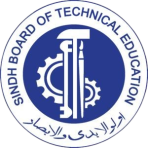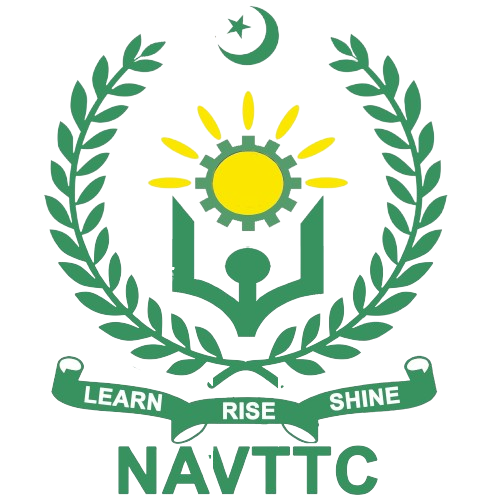Become a Successful Principal
School Management Diploma




Duration:
1 year

Certified Trainers:
Receive instruction from Certified Trainers

Mode of Training:
Hybrid

- 1 year diploma
- Access free courses
- Practical based learning
- A chance to learn from experts
- The Trainer Support (Online)
- Huge job opportunities
Explore the path of becoming a Successful Principal, Coordinator or school owner
A School Management diploma is essential because it provides valuable knowledge and skills to efficiently run a school. With this diploma, individuals learn how to effectively handle administrative tasks, organize resources, and manage staff. It also covers financial management, curriculum planning, and student support, ensuring a well-rounded education environment. The School Management diploma empowers individuals to create a conducive learning atmosphere, optimize school operations, and foster a positive academic experience for students, teachers, and staff alike.
Why School Management is important?
School management is crucial for various reasons as it plays a central role in ensuring the effective functioning, growth, and success of an educational institution. Here’s why school management is important
Effective school management ensures that resources, including human, financial, and physical, are used efficiently and optimally. This results in smooth day-to-day operations and an environment conducive to learning.
A well-managed school is more likely to offer high-quality education. Proper management ensures that curriculum, teaching methods, and assessment practices are aligned with educational standards and goals, leading to improved learning outcomes for students.
School management impacts student performance. A well-organized school provides an environment that supports academic and personal development, helping students achieve their potential and excel in various areas.
Effective management fosters a positive work environment for teachers and staff. This includes providing professional development opportunities, recognizing their contributions, and ensuring a collaborative atmosphere that contributes to job satisfaction.
School management plays a role in engaging parents and the local community. Open communication, involvement in decision-making processes, and community outreach initiatives help build strong relationships and support networks.
Proper financial management is essential for the sustainability of a school. This includes budgeting, resource allocation, and revenue generation strategies that ensure the institution's financial health and the availability of resources for educational programs.
School management involves long-term planning to set goals and objectives, create strategic plans, and implement initiatives that align with the school's mission and vision. This helps the school adapt to changing educational trends and needs.
Effective management contributes to maintaining a safe and disciplined school environment. Proper policies, procedures, and protocols ensure the safety and well-being of students, staff, and visitors.
Managing school facilities and infrastructure is essential for providing a conducive learning environment. This includes maintenance, upgrades, and ensuring that facilities are equipped to meet educational needs.
Schools must adhere to various regulations and standards set by educational authorities. Proper management ensures that the school meets these requirements, avoiding legal and compliance issues.
School management should encourage a culture of continuous improvement and innovation. This involves adopting new teaching methods, integrating technology, and seeking ways to enhance the learning experience.
Schools may face various crises, such as natural disasters, security threats, or health emergencies. Effective management involves having preparedness plans and protocols in place to handle such situations and ensure the safety of all stakeholders.
In summary, school management is essential for creating a positive and effective learning environment that benefits students, teachers, staff, parents, and the community. It encompasses a wide range of responsibilities that contribute to the overall success and growth of the educational institution.
Welcome to our comprehensive 12-month School Management Diploma program!
School Management Module Breakdown
1
Active Learning Methodology
In this module, you will explore dynamic and engaging teaching techniques that prioritize student participation and collaboration. Discover how active learning fosters critical thinking, problem-solving, and creativity among students, making the learning process more meaningful and impactful.
2
Lesson Planning
Effective lesson planning is at the core of successful teaching. Learn how to design well-structured and goal-oriented lesson plans that cater to diverse learning styles, ensuring that every student has the opportunity to thrive academically.
3
Bloom's Taxonomy
Understanding Bloom’s Taxonomy is essential for educators aiming to create comprehensive and progressive learning experiences. This module will help you categorize educational objectives based on cognitive complexity, enhancing your ability to design appropriate assessments and foster higher-order thinking skills.
4
Leadership and Management
Develop strong leadership and management skills to lead educational institutions effectively. Gain insights into strategic planning, decision-making, team-building, and fostering a positive school culture that promotes collaboration and continuous improvement.
5
Classroom Management
Effective classroom management is vital for creating a conducive learning environment. Learn proven strategies to maintain discipline, manage time efficiently, and build positive teacher-student relationships that foster a nurturing and supportive classroom atmosphere.
6
Entrepreneurship
In today’s educational landscape, entrepreneurial skills are essential for school administrators and educators. This module explores innovative approaches to funding, resource management, and leveraging technology to ensure sustainable growth and success for your educational institution.
We provide
- Unique methods of learning
- Certificates as an award
Job opportunities after doing the diploma
Upon completing a School Management Diploma in Pakistan, you can open doors to roles such as school administrator, educational coordinator, academic supervisor, or leadership positions in educational institutions. This diploma equips you with the skills needed to effectively manage school operations, promote educational excellence, and foster a conducive learning environment for students and staff.
READY TO TAKE THE FIRST STEP TO A SUCCESSFUL CAREER?
ENROLL NOW!
FREQUENTLY ASKED QUESTIONS
At least one should have passed matriculation.
Individuals aspiring to become principal coordinators or school owners can take advantage of this diploma.

